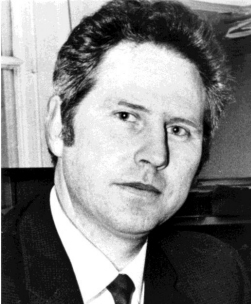|
IN MEMORIAM

Professor H. Harford (“Haffi”) Williams (1931 – 2018)
Professor Haffi Williams passed away on July 4th, 2018. Haffi was a renowned fish parasitologist with a special interest in cestodes. Combining his Welsh charm with a winning smile and a good sense of humour, he was always very popular, both with his peers and his students. At scientific meetings, it appeared to his students that everybody knew him.
Haffi was born in Meidrim, a predominantly Welsh- speaking rural village in Carmarthenshire, West Wales, the fifth son of a tailor. Until the age of 11 his education was in Welsh. He read Zoology at the University College of Wales, Aberystwyth, and was awarded a First Class Honours degree in 1954, remaining at Aberystwyth to complete his PhD on ‘Studies on Helminth Parasites of Fishes from the Western Seaboard of the British Isles’ in two and a half years under the supervision of Prof. Gwendolen Rees, FRS.
After post-doctoral fellowships at the British Museum (Natural History), the Universities of Montpellier and Neuchâtel, and the Plymouth Marine Laboratory, his university teaching career started in 1959 at University College, Cardiff. This was followed by a period as Assistant Director of the Commonwealth Bureau of Helminthology at St. Albans, where he helped establish a fisheries helminthology research group which developed into the NERC Fisheries Helminthology Unit. Between 1965 and 1970, Haffi was a lecturer in Zoology at the University of Aberdeen and headed the Fish Parasitology Unit at the Marine Laboratory, Aberdeen. In 1970 he was awarded a DSc by the University of Wales for the quality of his research. After his time in Scotland, and until his retirement in 1990, he held a prestigious post as first Director of the Open University in Wales. During and after this time, he acquired a large number of honorary positions and awards, including Professorial Fellow of the University of Wales, Cardiff, a Visiting Fellowship at Sidney Sussex College, Cambridge and Honorary Membership of the British Society for Parasitology. He was also a Parasitology Research Fellow of the National Museum of Wales, an institute which greatly supported him and now houses his specimen collection, library and original illustrations.
Haffi’s research contributions ranged greatly, covering many aspects of the biology of the helminth parasites of fishes, including systematics, ecology, host-specificity, physiology and their use as indicators of host-biology. His interest in the fish-gut as an environment for parasites and his studies on the physiology and morphology of their micro-environments, linked to his considerable artistic ability, enabled great insights into the way parasites behave and attach. His ability to comprehend and illustrate the host-parasite interface in three dimensions resulted in the reproduction of some phenomenal illustrations which clearly took weeks to complete. Although he accomplished detailed investigations on nematodes, monogeneans and gyrocotylideans, his main interest was the systematics and biology of ‘tetraphyllidean’ cestodes, completing very thorough revisions of several genera in the 1960s. Although the administrative load at the Open University took up most of his time, he still maintained an interest in research and supervised post-graduate students. During this period, with Arlene Jones, he also completed an important review of ‘Marine helminths and human health’ and a seminal book entitled ‘Parasitic worms of fish’.
Among his postgraduate students were Ken MacKenzie, John W. Smith, Alasdair McVicar, Rod Bray and myself. The fact that we were active in the field of fish parasitology throughout our working lives is testament to the interest in the subject transmitted by Haffi’s contagious enthusiasm, but also to the independence he encouraged in his students. He unselfishly made available good projects to students, and was of the opinion that, if one can manage to stimulate another researcher to further investigate the topic from a comment you make in a paper, then science wins!
Away from parasitology, few of his contemporaries knew that in his youth Haffi was quite an athlete, both on the track and on the rugby field. Only an unfortunate knee injury prevented his playing for Llanelli Rugby Club. After his retirement, Haffi occupied his time in different fields of interest, namely, the origins, history and use in society of Labrador-Retrievers, sorting out long-standing collections of old corkscrews and rare postcards by well-known animal artists, and adding to his well-deserved reputation as a maker of quality home- brewed beer.
Haffi leaves his wife Margaret, who supported him throughout his working life and beyond, two sons, a daughter and two grandchildren. He will be greatly missed as a mentor, friend, husband, father and grandfather, but will live on in the smile that memories of him will engender.
David I. Gibson
|